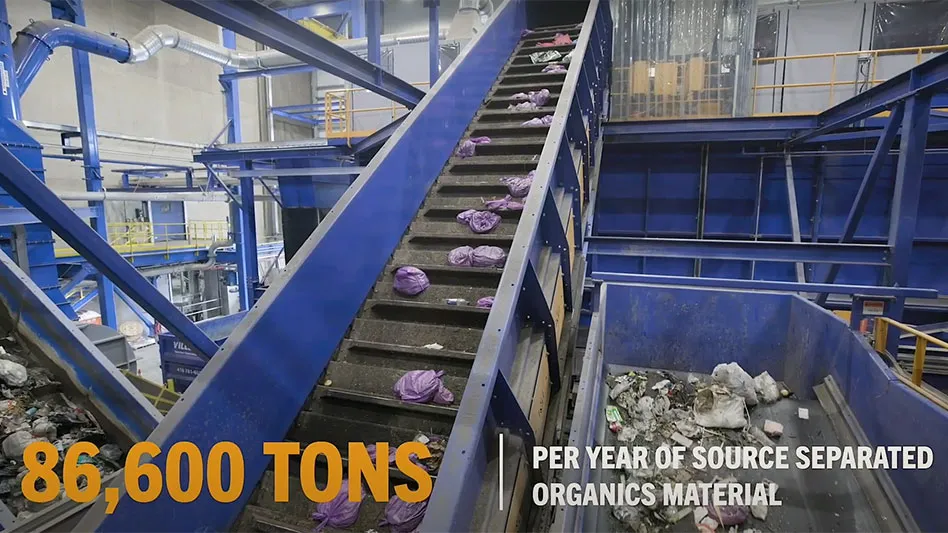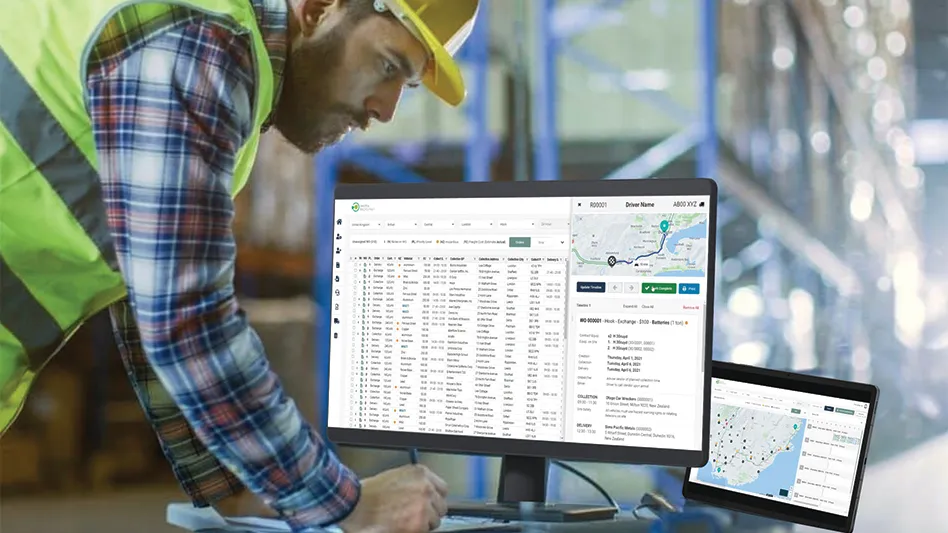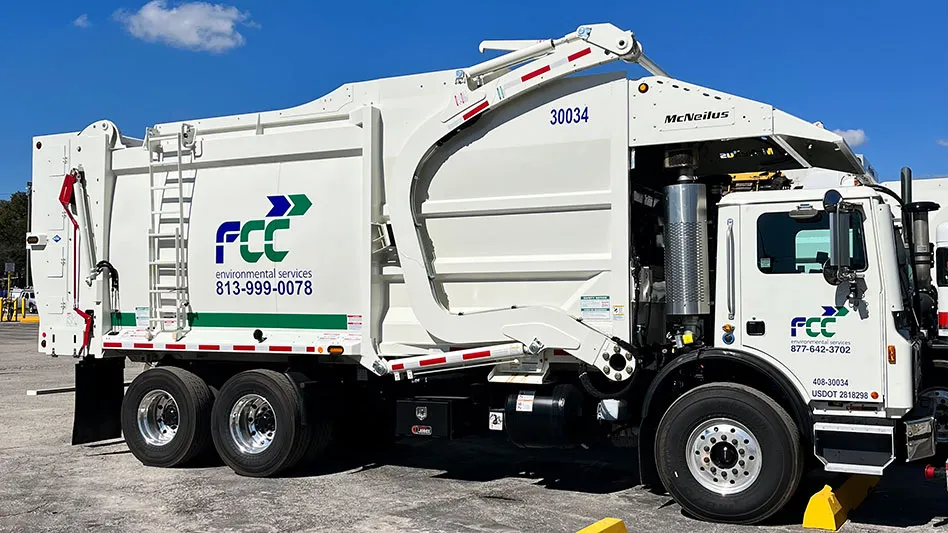
Despite a widening division among party lines following last week’s midterm elections, waste and recycling industry leaders are still hopeful Congress can compromise on one key area in the upcoming months: infrastructure.
Following Tuesday’s election, Democrats recaptured control of the House of Representatives, while Republicans strengthened their majority in the Senate. Some local candidates had direct ties to the waste and recycling industry, but none were successful. Scott Wagner, a National Waste & Recycling Association member, lost the Pennsylvania governor’s race to the incumbent, while John Chrin, whose family owns Chrin Hauling and Chrin Brothers Inc. Sanitary Landfill, lost the race for a seat in the U.S. House of Representatives in Pennsylvania’s 8th Congressional District.
The switch in party control of the House means changes in committee chairmanships, with Rep. Bobby Scott (D-Virginia.) chairing the Education and the Workforce Committee, Rep. Frank Pallone (D-New Jersey) chairing the Energy and Commerce Committee and Rep. Richard Neal (D-Massachusetts) leading Ways and Means committee. Also, both members of the House Recycling Caucus, as well as the co-founder of the new House Food Waste Caucus, all won re-election.
Overall, though, the election results don’t translate to much for industry leaders quite yet.
“Any time [a flip] happens, it doesn’t impact us as much. We are bipartisan and play both sides of the aisle,” says Billy Johnson, a chief lobbyist at the Institute of Scrap Recycling Industry Inc. (ISRI), Washington. “In the grand scheme of things, we’re friends with both parties and we keep it that way.”
Opposing party control in Congress often leads to stagnant legislative action. However, Johnson and other industry officials are hopeful that bipartisan support of infrastructure reform could result in some action in that sector and lead to positive growth for the waste and recycling industry.
Jim Riley, the vice president of federal affairs at NWRA, Washington, says there is a national debate over what exactly constitutes infrastructure. However, Riley and Johnson say an improvement on just one key component of infrastructure—transportation—would have widespread benefits.
“Transportation is a big issue for all industries—the recycling industry is not alone in this,” Johnson says. “We need better rail service since we ship a lot of materials. We need better roads and bridges. We need more truck drivers. We need better ports. Because we have to bring product into our yards and get it out ... transportation is key to us.”
Large-scale transportation projects could lead to opportunities for the C&DR sector as well. Johnson says he wants to communicate with lawmakers the opportunity to recycle hard-to-recycle materials, like plastics, into new materials to help with infrastructure projects. This includes things such as turning used tires into rubberized asphalt and recycled plastic into industrial parts, like piping.
“We are eager to work with the new Congress to ensure its members focus on enacting measures that will further contribute to economic growth,” says Stephen Sandherr, the CEO of Associated General Contractors of America (AGC), Arlington, Virginia, in a written statement. “Our top priority will be helping both parties come together to enact the kind of significant new infrastructure measures the president has long promised. This is an issue that leaders in both parties have expressed support for and we expect them to make infrastructure a top priority early in the new year.”
Aside from transportation reform, Riley adds that he would also like to see infrastructure in place that improves the nation’s recycling capabilities to process materials internally, especially as China keeps tight restrictions on materials it accepts from the U.S.
While conflicting leadership in Congress often isn’t productive, Riley is optimistic that infrastructure’s bipartisanship could lead to action.
“I think there’s an appetite on both sides to do something about this,” Riley says. “It frankly is something that’s popular with everybody.”
Industry leaders say they intend to build relationships with newly elected officials to raise awareness of issues that may not be on their radar as well, like workforce shortages and trade issues with China. Regarding the U.S.-Mexico-Canada agreement, Johnson says ISRI will be working with others to try to ensure trade agreements are ultimately ratified by both the House and the Senate. Industry leaders say they also want to communicate the industry’s need to find workers to fill positions at facilities. While the recycling industry is one of many industries that is experiencing labor shortages, Johnson says, the industry needs to communicate its story to lawmakers—especially as President Donald Trump favors getting more people into the U.S. workforce in general.
“We will work with the next Congress to double, over the next five years, federal investments in career and technical education,” Sandherr says. “Our economy is producing too many underemployed college graduates and too few people with the skills needed to pursue high-paying construction careers. And we will continue to advocate for comprehensive immigration reform that secures our nation’s borders, addresses the undocumented workers already here and establishes a new guest worker visa program for construction.
“Even as we work to promote common-sense, pro-growth measures, we will also aggressively guard against any measures that threaten to undermine the nation’s continued economic growth, including needless new regulatory burdens. Whatever the final lessons to be drawn from tonight’s voting, no one should conclude that the American people thirst for more regulatory red tape that will stifle job creation or undermine economic growth,” Sandherr adds.
Johnson recommends that recycling industry professionals take time to communicate what they want to their state legislators and councilors. He adds that ISRI offers economic data on its website to help back up key issues when meeting with legislators, such as tax revenue information, job numbers and export impact.
“When you give [legislators] the numbers, their eyes light up,” he says. “Economic data is important to educating and convincing people. With that, let them come to visit your company. Have them meet your employees.”
Additionally, NWRA established a political action committee (PAC) in June. While the PAC is still starting up and has not yet solicited contributions, Riley says it received $22,000 in cash and pledges before the election, so it was able to make some contributions. He only anticipates growth for the PAC as it works to further its goal of electing “a pro-business, pro-infrastructure Congress that will benefit the waste and recycling industry.”
Early next year, NWRA will also be hosting a meet-and-greet with new members of Congress from both parties and key industry leaders to let their voices be heard on issues they’re facing. For many in the industry, support doesn’t hinge on a particular party—it depends far more on the beliefs of individual candidates.
“It’s such a ubiquitous industry,” Riley says. “There’s no Republican garbage or Democratic garbage. It’s something everyone in the country is relying upon to have a clean environment.”
ISRI plans to host a virtual town hall on midterm election results for its members at 11 a.m. EST Nov. 13. Members can sign up online to learn more about this year’s election impact.
Latest from Waste Today
- Bioenergy Devco honored at SEAL Awards
- AMCS showcasing Performance Sustainability Suite at WasteExpo
- New Way and Hyzon unveil first hydrogen fuel cell refuse truck
- NWRA honors award recipients during annual breakfast at WasteExpo
- Rubicon selling fleet technology business, issuing preferred equity to Rodina Capital
- Machinex to feature virtual tour of Rumpke MRF at WasteExpo
- Reworld releases 2024 sustainability report
- Novolex invests in Ozzi





